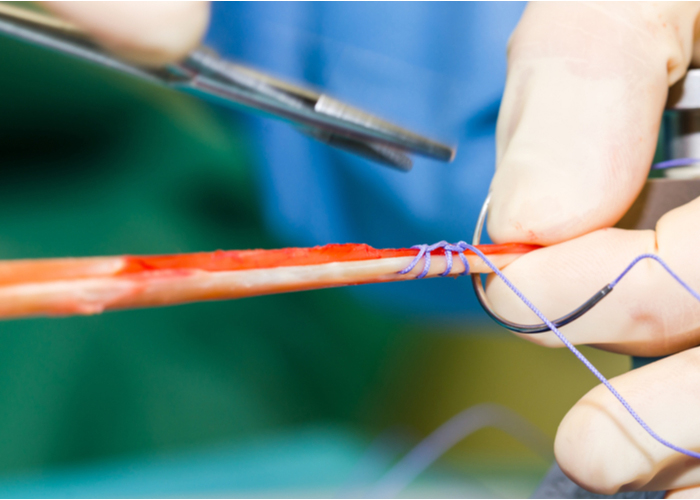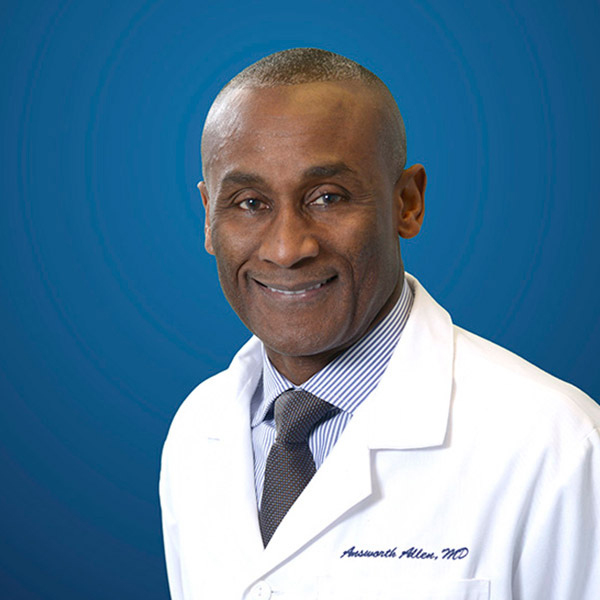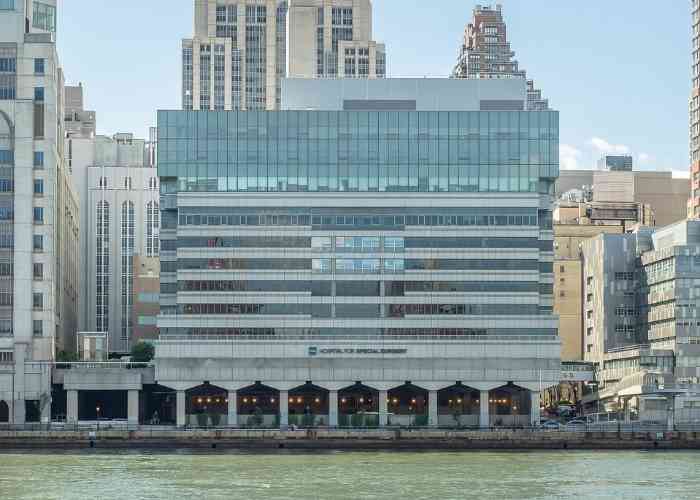What is an anterior cruciate ligament (ACL) injury?
The anterior cruciate ligament (ACL) is one of four ligaments within the knee complex. This ligament plays an important role in limiting forward movement of the tibia (shin bone) as well as rotational stability. The ACL is attached to the posterior (back) femur (thigh bone) and travels diagonally through the center of the knee to the anterior (front) tibia. An injury to the ACL occurs when the ligament is stretched beyond its limits causing it to tear and the tibia can subsequently slide out from under the femur. This is a common injury among athletes of all ages and competitive levels.

What is the treatment for an ACL injury?
If a patient suffers an ACL injury and does not experience knee instability or does not utilize the ACL on a daily basis, conservative therapy may be sufficient to heal the damaged ligament. However, in the event of a severe or complete tear, or unsuccessful conservative treatment, surgical intervention may be necessary. ACL reconstruction surgery involves replacing the damaged ACL with a tissue graft, either from the patient (autograft) or a donor (allograft). An autograft is harvested from the patellar tendon, hamstring tendon, or quadriceps tendon. Because a torn ACL cannot simply be sutured back together, this tissue graft provides a surface for new tissue to grow. This surgical technique aims to restore the function and mobility of the knee. Dr. Answorth A. Allen, orthopedic knee surgeon, treats patients in Manhattan, New York City, Westchester, Long Island and surrounding areas who are in need of an ACL reconstruction.
How is ACL reconstruction performed?
Arthroscopic ACL reconstruction is typically performed as an outpatient surgery as the recovery does not generally warrant an overnight hospital stay. Prior to the procedure, patients are given a regional anesthetic block to numb the leg and Dr. Allen performs another physical examination to confirm the torn ACL and check the integrity of the other knee ligaments. The tissue graft is then harvested from the patient or thawed from a donor bank. Dr. Allen makes small incisions surrounding the knee and introduces a sterile solution to visualize the muscles, tendons, and ligaments of the knee clearly. A small camera (arthroscope) is then inserted into the knee and the images are projected onto a screen for Dr. Allen to assess the ligament damage. Specialized surgical instruments are then inserted to excise the damaged portion of the ACL. Dr. Allen then drills through the femur and tibia to create the tunnels that the tendon graft will inhabit in place of the torn ACL. The new tendon graft is passed through these holes and fastened by interference screws or special surgical anchors that are secured within the bone. Before completing this procedure, the new ligament is assessed for good tension and stability and the range of motion of the knee is evaluated. The arthroscope and specialized surgical instruments are then removed, incisions are closed with sutures or steri-strips, and a dressing is applied around the knee.
What is the recovery period like after ACL reconstruction?
The recovery period following an ACL reconstruction is determined by the type of tissue graft used and the specific surgical technique performed by Dr. Allen. Most patients can expect to return to normal daily activities in approximately 4-6 months and sports-related activities between 9-12 months. A patient’s recovery success also depends on the willingness to comply with post-operative care instructions and rehabilitation protocols provided by Dr. Allen. Patients in New York can typically expect the following:
- Immediately following surgery, a brace is applied to immobilize the knee and worn for up to 6 weeks.
- Dr. Allen will prescribe pain medication to be taken as directed. A combination of rest, ice, and non-steroidal anti-inflammatory medications are encouraged for pain management.
- An individualized physical rehabilitation program will be prescribed to begin 2-3 days after surgery. Adhering to and completing this physical therapy program is vital to restoring strength, mobility, and range of motion to the knee following an ACL reconstruction.
Dr. Allen put together an informational video (below) for you to learn more about ACL reconstruction:
ACL Tear Surgeon

Are you an athlete who has experienced a recent injury to the knee? if so, it is possible that you may have sustained an ACL injury. Tears or injuries to the ACL are very common in athletes and can be treated conservatively in many cases. Patients experiencing more severe symptoms, however, may require ACL reconstruction surgery. Complex knee surgeon Doctor Answorth Allen provides diagnosis and treatment for patients in Manhattan, New York City, Westchester, Long Island and surrounding areas. Contact Dr. Allen’s team today!






